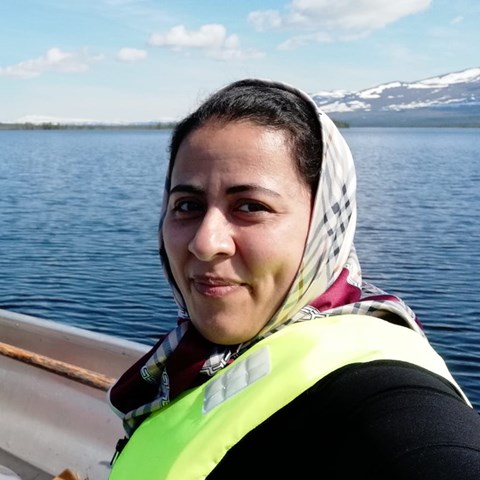At SLU, more than 400 researchers and experts work extensively with water. From the springs and sources, via streams and lakes, through forest and agricultural landscapes and cities, all the way out to the coasts and seas.
Since the United Nations Rio Conference in June 1992, the World Oceans Day has been celebrated on June 8th. SLU Water Forum raises awareness of important ocean issues by being more active on social media, making it easier to get to know about ongoing ocean-related research. Keep an eye out!
Maliheh Mehrshad study the role of parasites in controlling algal blooms and the role of microbes in degrading oil hydrocarbons from marine environments.
We ask her three questions ...
What does the ocean mean to you?
The ocean for most people is usually a reminder of happy memories like spending quality time with the family during their holidays or having fun doing water sports, etcetera.
I am no exception, I appreciate ocean for all these reasons and more! As a microbial ecologist with the experience of working on aquatic microbial community for many years, the ocean means a lot more to me. I am aware of all the services this amazing ecosystem is providing us.
In my studies, I am focusing on microbes. While they are invisible to the naked eye, they are an essential component of the ocean ecosystem. There are estimates that 90% of all the biomass in the ocean belongs to microbes.
This is fascinating especially because these microbes are also involved in many different processes. Just to give an example; microbes are at the base of the food web in the ocean and fix carbon dioxide to organic matter via photosynthesis. Phytoplankton involved in the process of photosynthesis produce a major part of the oxygen we have in the atmosphere and breathe.
Is there any specific ocean issue that you consider particularly important?
Many issues are very importance regarding oceans such as ocean pollution and ensuring the sustainable use of all the resources it is providing us.
In order to continue using the ocean ecosystem in a sustainable way we first need to understand how this ecosystem is responding to rapid changes happening due to climate change and human imposed pressures.
The ocean is a vast ecosystem and hosts a great diversity of microbes that are involved in essential aspect of this ecosystem like biogeochemical cycles, primary production, pollution removal, etcetera. A considerable part of this diversity remains understudied.
From my perspective, something I am very passionate about and can contribute to is to unravel the diversity of microbes in the ocean. I am passionate about better understanding this diversity, their interactions, and their potential and use this knowledge in services of the ocean ecosystem itself.
What research do you do regarding the ocean?
In my research, I am focusing on the role of parasites such as viruses and chytrids (a group of fungi) in controlling algal blooms. Undesirable harmful algal blooms in coastal areas are a big challenge. I am studying the role of parasites in modulating these blooms and their potential use as biocontrol agents.
Additionally, in another line of my research I focus on the role of microbes in removing and degrading oil hydrocarbons from marine environments. Oil pollution and spill is another challenge in the ocean that microbes can have a big role in resolving. In this topic, we study how exposure to oil changes the microbial community and then explore the enzymatic capabilities of these microbes in removing oil pollution.
Microbes in the ocean are very diverse and the better we understand their diversity, the more we can leverage their potential.
